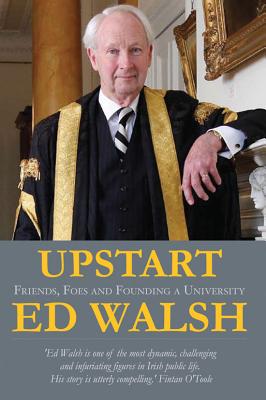
Perhaps the first thought someone might have hearing about outdoor theater on the lawn behind the Bridgehampton School would be that the traffic noise from the highway nearby is going to be loud. Dismiss the notion, because the huge brick building blocks nearly all sound from the vehicles rolling by on the other side — which is good, because being able to closely hear the roiling, if sometimes hard-to-follow, lovers’ battles and reunions in Shakespeare’s “A Midsummer Night’s Dream” is essential. The show is Josh Perl’s baby, with production help from Peter Zablotsky, Peter Tolin Baker’s design, and Richard Horwich as its dramaturge. Mr. Perl, familiar to theatergoers here, is the guiding force behind the Naked Stage company, which hosts readings and other events at East Hampton’s Guild Hall. His staging of “Midsummer Night’s” is a traditional one and uses the wide space ofhe school lawn to good effect. The set, curiously enough, is dominated by the cast-off sails of small boats, Lasers to be precise, whose vaguely shooting-star-like logos are appropriate for this play about the intersection of fairies, woodland spirits, common laborers, and mostly hapless Athenian aristocracy. Honestly, one might be hard-pressed to argue that Shakespeare wrote a more appropriate script to match high season on the overheated South Fork than this. Simple wood risers do little more than provide means for the large cast to come and go. Most of the play is set in a woodland grove, and so the players come forward onto the grass, closer to the audience. The company, the Hamptons Independent Theater Festival, provides a couple of rows of metal chairs; guests may bring their own low-slung beach seating or blankets. Admission is $20. Gerard Doyle, a seasoned actor with many United States and London credits, and Clodagh Bowyer, equally accomplished with a résumé heavy with Off Broadway and Irish theater, are the obvious standouts. Mr. Doyle’s Oberon, the fairy king, is as admirably lecherous and impulsive as his other role in the comedy, Theseus, the Duke of Athens, is measured and fair. Ms. Bowyer’s Titania, whose custody battle with Oberon over possession of a changeling spirit, is commanding. She also plays Hippolyta to Mr. Oberon’s Theseus. For this production, Mr. Perl put together quite the cast, 17 in all, some with plenty of stage credits; some not so much. Standouts include Ashley Brooke’s Queens (as in the borough)-accented Robin Goodfellow/Puck, and Irene Stefanik as Egeus. The players’ range of styles and aptitudes means that two audience members sitting together might have widely differing opinions as to whom they liked. To one viewer, Bottom, the star of the play-within-the-play, who becomes Titania’s charm-caused love interest, played by the energetic Maddie Casto, might be a tad too much. For the person sitting next to him, however, it is high comedy. Given free hand to recast the play, one might swap her for Alan Stewart or Stephan Scheck, both strong comic actors, of whom we see too little in the production. One apparent objective in Mr. Perl’s version of this “Midsummer Night’s Dream” was to invert, for the most part, the Elizabethan-period casting of men as women. Here the male roles of Lysander, Demetrius, Robin Goodfellow, Egeus, Nick Bottom, and some minor parts go to women. It is mostly a painless inversion for the audience, if a little confusing at times, particularly in an era where same-sex unions are no big thing. The mind thinks, “Women holding hands? Whatever” — barely noticing that the characters are supposed to be of differing genders. Playing a man, Kathryn Lerner’s Lysander comes with a dollop of arrogance as befits a member of the Athenian upper crust. As Demetrius, Kasia Klimiuk’s approach is perhaps not as forceful as this particular late-16th-century romantic comedy might require, though it is her observation that perhaps best summarizes a play about the fickle vagaries of the heart: “My love to Hermia, melted as the snow, seems to me now, as the remembrance of an idle god, which in my childhood I did dote upon. . . .” The biggest laugh of the night was owned by Kea Trevett, who as the distraught Helena spends the play chasing Ms. Klimiuk’s Demetrius through and around the grove. Paired with Licia James Zegar, who played the other Athenian love interest, Hermia, there is a notable electricity, particularly in a scene in which Helena accuses Hermia of conspiring to mock her unrequited desire for Demetrius with her counterpart’s lover, Lysander. All this is set off by Robin Goodfellow’s innocent mistake, dabbing the wrong swain’s eyes with the nectar of a Cupid-charmed flower that Oberon provided in a plot to force Titania to turn over the changeling for his own use as a page. (No one ever said Shakespeare’s plots were easy to follow.) Meanwhile, Nick Bottom and a troupe of working-class Athenian amateur actors are preparing a dramatic “tragedy,” with which they hope to entertain guests at the planned wedding of Demetrius and Hermia. In the woods to rehearse with the other actors, Bottom is turned into an ass, ears and all, by Puck, and becomes Titania’s love object when the fairy queen awakes. Among those in the play-within-the- play, Michael Iannuzzi catches attention with his neck-strainingly funny Francis Flute, a humble bellows-maker, who portrays Bottom’s love, Thisbe, in a tight skirt and cut-off top. With a 7 p.m. approximate start time, the play drifts pleasingly from twilight into darkness. The relatively brief second act takes place against the black backdrop of the night; theatergoers Saturday may well be treated to a glimpse of the Perseid meteor shower if they look up. Toward the play’s conclusion (it runs a shade over two hours), Puck leads the forest fairies in a dance effectively staged by Mr. Perl with a pleasing modern twist. As to the point about traffic noise, almost the only distraction on a recent evening was one passing ambulance, whose sirens never quite drowned out the dialogue. Not so with a helicopter, no doubt running one of the Hamptons’ ruling class to his or her summer house, which twice passed overhead, obscuring the actors’ voices — a rather sweet bit of coincidence in a play about the romantic foibles of the powerful.
— Clodagh
www.ClodaghBowyer.com




